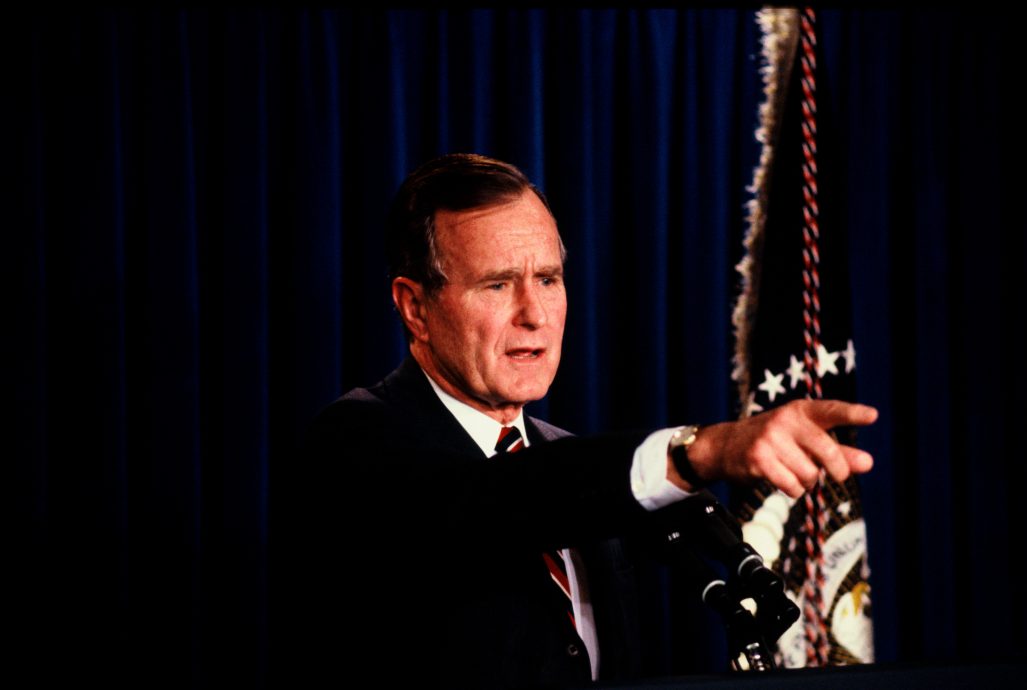The Political Character of Our 41st President
The passing of a former President is always an important time to remember his term in office.
There is a norm that says that we should not say negative things about a person who has recently passed away. And I think the norm makes great sense for persons who personally knew a private individual who has died. But I don’t think the norm makes much sense when we attempt to remember a former President’s performance. That is a matter for political analysis.
From what people say who knew him, it appears that George H. W. Bush was a fine man who had many admirable qualities. And I know that he did some good things in office, such as executing the Gulf War. But I believe that George Bush’s presidency was marred by a fatal flaw that involved both his political integrity and policy performance. Given that defect, it is hard to praise his political character.
George Bush was handed the presidency on a silver platter by Ronald Reagan. And George Bush responded ungratefully by undermining the principles on which the Reagan presidency was based.
After the Reagan presidency, the country was strong both economically and militarily. The next Republican candidate would have a great advantage in running for the presidency. With this advantage, Bush was able to keep the presidency in the Republican Party’s hands for four more years, something that has been quite unusual since the end of World War II.
Republicans and the nation were suspicious of Bush. He had criticized Reagan for embracing what he called “voodoo economics.” So when he ran for president, he had to convince Republicans and the nation that he would stand firm on Reaganite principles. The main way that he sought to persuade them was through his “read my lips: no new taxes” pledge. For those who have not heard it, it was astounding. Bush went on and on about how he would not raise taxes, even if the Congress pushed and pushed and pushed.
But what happened? Congress pushed and he agreed to raise taxes. Now, this was stupid both economically and politically. The taxes were not good for the economy. But more importantly, how could anyone trust a man who had made this a central pillar of his campaign? His broken pledge no doubt significantly contributed to his loss in the next election and his resulting status as a one term president.
But it was not just the broken pledge that was problematic. Bush had presented himself as someone who would continue the popular policies of the Reagan Administration. His was going to be the third term of the Reagan presidency. Instead, Bush double-crossed Reagan and his followers. Once he had secured the nomination, he started talking about “a kinder and gentler” nation. As Nancy Reagan is reported to have said, “kinder and gentler than whom”? Everyone knew—kinder and gentler than the Reagan Administration.
And when Bush assumed the presidency, he purged the government of Reaganites, replacing them with Bush loyalists. It is fine for a President to bring his own people in. The problem was that these people did not believe in the Reaganite principles. They were “pragmatists” who sought to compromise those principles—as they did on new taxes and many other policies.
In the end, Bush did not engage in honorable behavior. He falsely portrayed himself to get the presidency and then opportunistically broke his promise. But his behavior was not just shameful. It also ended the Reagan era. The possibility of 16 years of a Reagan Revolution was destroyed.
I am sad for George Bush’s family and friends. But I do not mourn much of his presidency.


